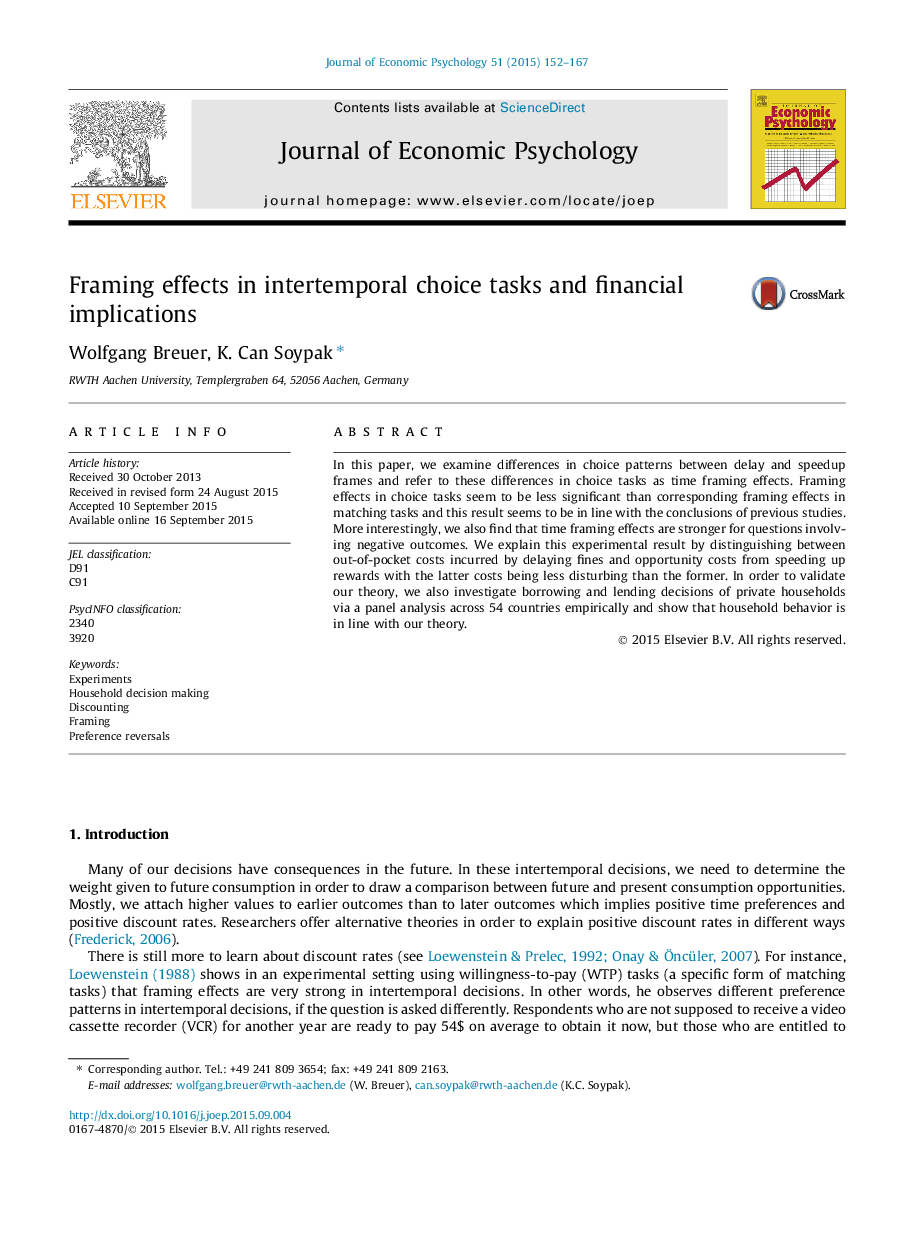| Article ID | Journal | Published Year | Pages | File Type |
|---|---|---|---|---|
| 7244520 | Journal of Economic Psychology | 2015 | 16 Pages |
Abstract
In this paper, we examine differences in choice patterns between delay and speedup frames and refer to these differences in choice tasks as time framing effects. Framing effects in choice tasks seem to be less significant than corresponding framing effects in matching tasks and this result seems to be in line with the conclusions of previous studies. More interestingly, we also find that time framing effects are stronger for questions involving negative outcomes. We explain this experimental result by distinguishing between out-of-pocket costs incurred by delaying fines and opportunity costs from speeding up rewards with the latter costs being less disturbing than the former. In order to validate our theory, we also investigate borrowing and lending decisions of private households via a panel analysis across 54 countries empirically and show that household behavior is in line with our theory.
Related Topics
Social Sciences and Humanities
Business, Management and Accounting
Marketing
Authors
Wolfgang Breuer, K. Can Soypak,
